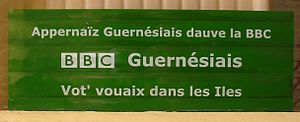Once I explain what it is I do for a living, people, particularly here locally in the Channel Islands often say to me “But which domain extension should my business or organisation be using for best effect?”.
What is interesting, is that the approach people have on the subject appears to be influenced by their age, length of time on the Internet and the locations where their business is targetting.
The thing to always bear in mind, is that a major (although not the only) use of a domain name, is as a brand.
A brand for a business, organisation or for a particular topic. You can see the thinking behind my choice of the nigel.je brand here.
Because of the Crown Dependencies’ close links, both geographic, constitutional and economic, with the United Kingdom, before 1996 it was very common for those few Channel Island organisations that were on the Internet at the time, to use .UK domain names, and as what we now call “gTLD” names. (Usually .NET since the .COM usually belonged to an American company).
15 years ago, when we created the Channel Islands’ domain registry, there were only two ISPs (GUERNSEY.NET in Guernsey, and SuperNet (ITL.NET) in Jersey
Back then, even the Islands’ governments used to use .GOV.UK or X.400. (In fact we still maintain a legacy registration of the name GUERNSEY.GOV.UK with JA.NET on behalf of the States). Also, despite Guernsey not being part of the UK, because of the integration with the UK forces, the police continue to use GUERNSEY.POLICE.UK as well as various .GG names for other purposes.
(It’s perhaps worth noting that to some people outside, the message which the use of that brand appears to send out is that despite the Islands’ complete domestic autonomy from the UK, the forces of law and order are under significant influence if not control from London.)
Following the creation of the .GG, .JE and .IM country codes on the Internet in 1996, and adoption by the International Standards Organisation (ISO) as official territorial two-letter ISO codes in 2006, Guernsey and Jersey (and the Isle of Man) has started to appear in drop down lists on websites as options. If you don’t see Guernse, Jersey and the Isle of Man, the website developer is almost certainly using out-of-date libraries.
This is all part of what our politicians rightly call “the emerging international personality of the jurisdiction”.
What Montenegro did in a couple of years, we take 800 or so years to do!).
In general, this is A Very Good Thing.
But it’s left quite an interesting approach to using domain names.
Anyone who was at school after about 1998 naturally understands immediately that .GG = Guernsey, and .JE = Jersey as they will have been familiar with .sch.gg and .sch.je email addresses.
However anyone older than that may be subscribe to have the school of thought that was common in the early days after the Internet arrived in the Islands and took the pragmatic view that “we aren’t part of the UK, the .COM is in use by an American company. so let’s use .NET”. An example of that, already mentions, is guernsey.net (now owned by Wave Telecom).
Furthermore people who came onto the internet around in the dotCOM boom (and bust!) think that .COM is the be-all and end all when it comes to online businesses.
And then of course, there are the deliberate branding exercises.
Some companies want to be seen to be a global enterprise. They feel they have to use .COM (if they can find one available or more likely, are forced to buy one in the ‘secondary market’)..
Surprising to some of us, but some companies want to downplay their Channel Island connections.
After all, we have UK +44 telephone numbers. We have Royal Mail standard postcodes and even though we have our own Postal Administrations, our mail, from outside the British Islands is addressed to the UK.
Therefore it’s understandable enough that some Channel Island companies, particularly those taking advantage of using Low Value Consignment Relief, may not want to highlight, or even may wish to obscure their Channel Island connections. A .CO.UK domain name is the natural choice for companies who want to pretend to be in the UK.
But a choice of domain name can have major implications. In a little know ruling, the European Court of Justice ruled that what domain name a company used for its website, and even whether it put its phone number on that website in internationa (e.g. +44) rather than national dialling code format, could have an effect on whether it was considered to be targeting customers abroad.
So I guess it’s only a matter of time before the UK Inland Revenue decides that a conscious choice to use .CO.UK is one factor leading to a UK tax bill of some sort.
And using overseas domains has all sorts of jurisdictional risks. I’ve written already about the risks of using unstable countries’ domains (BIT.LY etc).
And Alderney-based Full Tilt Poker found itself in some difficulty when they realised that the fact that the registry for all .COM domains is the the US made their domain subject to seizure.
At the end of the day, local companies should be proud of their origin, and for practical reasons as well as sentiment, should use the local domain.

